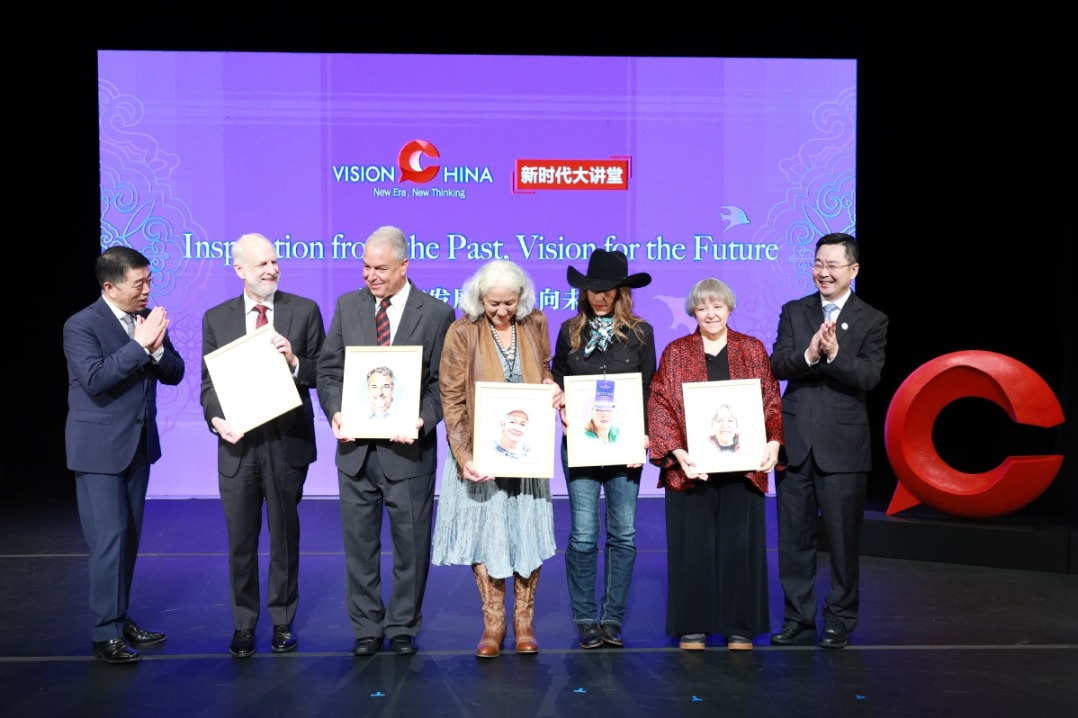Plantings promote fight against desertification
Rural workers rely on drought-resistant species to curb sand spread in Gansu, Inner Mongolia


Taking up a legacy
He explained that when he was a child, he used to enjoy playing in the desert, as he "harbored a keen curiosity about the mysteries concealed within the yellow sand".
That fondness dwindled when he got a bit older. While he was in primary school, his grandfather involved him in tree-planting activities, and he began to see the desert as a monotonous and exhausting place that he wanted to avoid at all costs.
"Due to the negative lingering impact of my childhood encounters with the desert, I sought employment operating heavy machinery in Lanzhou (Gansu's capital) after completing junior high school," Guo said.
He was drawn back to the desert in the autumn of 2016, however, after his uncle Guo Wangang, a second-generation ranger, asked him to help plant trees again.
Guo Xi reluctantly accepted, but as he worked, his perspective of the desert was once again altered.
"For the first time, I truly experienced the hardships of desert afforestation," he said. "Due to the demanding work, we had to leave early in the morning, return late at night and eat sand-filled steamed buns for lunch. Sometimes, when the planting locations were far away, we even had to sleep in the desert."
But through that experience, Guo Xi said he was able to see their efforts bearing fruit, and grew to appreciate the value of what they had done.
"When I climbed the highest dune in the spring, I saw clusters of white and yellow flowers dotted across the sand, with my gray-haired, wrinkled uncle by my side," he said. "A sense of achievement washed over me, and I suddenly understood the value of the enduring dedication of the preceding two generations. It was at that time that I decided to take up the burden from my uncle and take on the responsibility of desert management."
Since then, Guo has made several innovations. For instance, he applied the heavy machinery operation skills he had acquired working in Lanzhou to streamline the planting process. In addition, he boosted the incomes of his fellow rangers by introducing poultry farming and expanding chicken sales via livestreaming platforms.
The farm currently houses over 10,000 chickens and sells about 5,000 annually.
The desert management project in Babusha has been successfully completed. Guo and his colleagues are now tasked with managing an area of 300 sq km, achieving an impressive vegetation coverage rate of about 80 percent.
"I have deep roots here," Guo said, adding that he hopes the younger generation will apply more advanced technology to carry out desert management in a more scientific, automatic and efficient manner.























